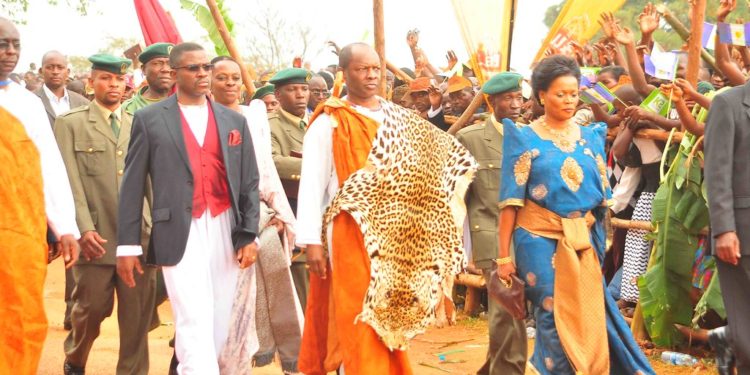The succession to the Kabaka of Buganda is a fascinating blend of tradition and evolving practices. When a reigning Kabaka passes away, a key ritual involves placing a barkcloth over the deceased’s body. The prince who performs this act first is traditionally seen as the one who will become the next Kabaka. This ritual underscores the significant role of traditions in the succession process, although its application has adapted over time.
A notable instance of this tradition is the ascension of Prince Mutebi. After the death of his father, Muteesa II, the late Jolly Joe Kiwanuka arranged for a barkcloth to be smuggled to England, where Prince Mutebi carried out the ritual at Captain Ronald Owen’s home. This adaptation of traditional practices under challenging circumstances highlights how the monarchy has managed to retain its core rituals while navigating modern realities.
Interestingly, Buganda’s succession process does not rely solely on this ritual. Unlike other monarchies with a crown prince system, Buganda’s system allows all princes, except Kiweewa (the firstborn), to be considered for the throne. This approach places the power of selecting the successor in the hands of the Lukiiko lwa Buganda (Parliament), which ensures a fair and balanced selection process. The Kabaka does not directly choose their successor, emphasizing the role of the Lukiiko in this important decision.
Historically, Kabakas had more influence over succession. They could show preference for certain princes, providing them with special training and attention to help them become suitable candidates for the throne. This subtle influence was significant in shaping the dynamics within the royal court.
Succession has sometimes been fraught with conflict. For example, Muganzirwazza, the mother of Muteesa I, took drastic measures to eliminate potential rivals and ensure her son’s rise to the throne. On the other hand, Prince Nuhu Mbogo, who was more focused on his Islamic faith than on becoming Kabaka, was spared from these intense struggles, showing how personal interests could influence the succession process.
The Kabaka’s statement that the Bataka (Clan Heads) do not elect him reflects the evolving nature of the monarchy. While the Bataka play an essential role, their function is to support the process led by the Lukiiko, rather than to make the selection themselves. This approach helps maintain a structured and balanced succession process while respecting traditional roles.







Discussion about this post